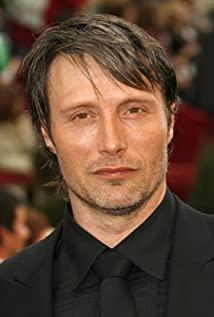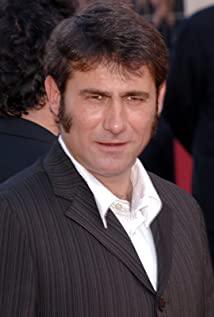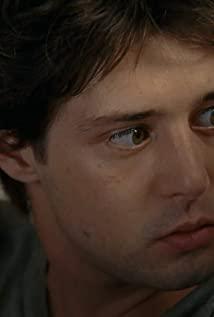Justice is always the right of the strong
Obviously, the movie "Horse Dealer Kohlhaas" (Michael Kohlhaas 2013) is about the theme of "justice", and if you go to see its plot, you will be very disappointed. A scholar said that justice "has a face like Proteus and is fickle." The implication is that it is difficult for us to give a definition of "justice" that everyone can accept. Different people are based on different There will be different, or even completely opposing, viewpoints. Nonetheless, the concept of "justice" is not without boundless possibilities. Generally speaking, justice involves "distribution", which is what we usually call "distributive justice", which not only involves the distribution of "benefits", but also the sharing of "rights", "duties" and "responsibility", If the standard of the distribution plan is acceptable to everyone, it is just. If everyone feels it is unfair, it is basically unjust. The question is who decides this "standard"? It is obviously unreasonable to judge the past from the perspective of today's people, and to measure the past with today's standards, because the laws, ethics or even customs on which "standards" are based are constantly changing. However, no matter how it changes, the basic point will not change, that is, justice has always been the rights and interests of the strong. Ignoring the rights and interests of the strong, any distribution plan cannot be passed. Even now, the so-called "just" distribution The plan is only that the weak get more rights, but the ratio can never reach 50%.
Colhas in this film is a horse dealer, a businessman in the Petit Barony. Although every time he saw the nobleman, the little baron, he bowed his head to show respect. In his opinion, his respect should be exchanged for the proper actions of the lord, such as protecting the lower-level people in the territory, which was a reasonable distribution of responsibilities at that time. , but the little baron didn't take his misbehavior seriously. He not only refused to undertake this common obligation at the time, but deliberately made things difficult for Colhas, which aroused the dissatisfaction of the rich businessman. The lord asked for help, although he received the support of the little baron's upper lord, the king's sister princess, but in exchange for a document denying the little baron's arbitrary charges. During Colhas' petition to the princess, the little baron did not treat Colhas's property well, abused his horses, and hurt his servants, which made Colhas feel that he was being treated unfairly, and he resorted to the law, The lawsuit seeks compensation for damages and the return of the impounded horses in good condition. This seems to be a reasonable request now, and his lawyer also supports his request, but the judge's favoritism not only made Kohlhaas a troublemaker, but even the lawyers dare not intervene in the case anymore. When the lawyer served the verdict, he asked Kohlhas to drop his claim, obviously the lawyer already felt that the little baron was an object to be offended. Korhaas also seems to realize this. For the sake of his family, he plans to swallow it up, and even wants to sell his property and stay away from the land of right and wrong.
But Colhas's wife was unwilling to accept the verdict: although the horses could be returned, they could not remain intact, the servants were injured, but the little baron and his servants did not need to bear any responsibility, and the compensation was nothing. Not mentioned, this is the justice distribution plan given by the law at that time. So she petitioned the princess, only to be plotted against by the little baron. The death of his wife inflamed Korhaas, who took up arms, rallied a team, and declared war on the little baron. However, although men can "rush into a rage", their real purpose never seems to be "for the beauty". The reason, that is the "justice" he needs from beginning to end. Blood for blood is the original justice. He attacked the little baron's castle. Although he killed the evil slave, the little baron ran away. Don't forget that the little baron escaped with the help of the nuns. It can be seen from one side that the clergy group is biased towards the nobles. In their opinion, who is righteous and who is unjust is clear at a glance!
Although Colhas's move was supported by the people of the lower classes, in their view, it was of course a righteous act, and even the princess adopted a policy of appeasement, agreeing to let go of the past in exchange for the Colhas rebels to lay down their weapons, but in the end, in the In terms of sharing the responsibility for maintaining order, the princess's appeasement agreement could never be approved by the noble group just like this. Even if Korhaas no longer insisted on letting the little baron raise the horses himself under the persuasion of the priest, his concession on this point was determined. It cannot be exchanged for the forgiveness of the noble group. When laying down his weapons in exchange for severance pay, the subordinate who claimed to have nowhere to go, Korhaas gave him a suggestion to find another subordinate. We do not know whether these two subordinates actually handed over their weapons. Even, it is not impossible that this subordinate is the eyeliner of the noble group, but Korhaas made a mistake that he will make no matter what, some of his subordinates still tend to rob, so the behavior of his former subordinates is still subject to Thinking it was a breach of the appeasement agreement, he had no choice but to flee. But the result was still arrested.
The reason for provoking the war Korhaas is justice, and similarly, the nobles also need justice to arrest him. At the moment of escorting him to the guillotine, the justice that the governor relied on was "order." For breaking the law and order, they made the little baron pay compensation and put the shackles on the little baron. They also told Colhas, The little baron needs to bear the punishment of two years in prison for disrupting the order of social security, but Kohlhaas needs to pay the price with his life. Whoever is right and who is wrong will then have their own judgment, but which side of justice is on, whose interests it is for, and whose justice is it is actually self-evident. (Text/Slate Planting Flowers Thursday, March 9, 2017)
View more about Age of Uprising: The Legend of Michael Kohlhaas reviews











